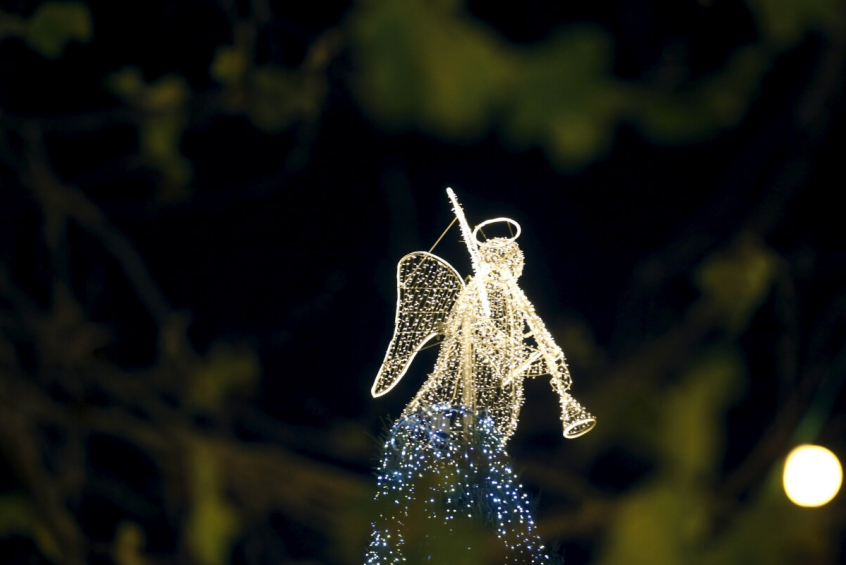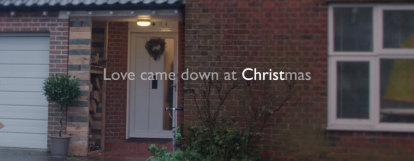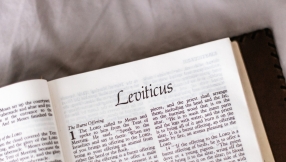
We have all been there. The date is in the diary a year in advance. We plan, we purchase, we load the event with every conceivable expectation that it will be a truly wonderful experience. But our imaginations are so much more creative than real life that when whatever it is arrives, it's a let-down.
For most people, Christmas falls squarely into this category. It's laden down by by society's relentless expectation that we'll have a good time.
Famously, Dr Johnson said, "When a man is tired of London, he is tired of life." Two hundred years later our culture seems to say, "If you aren't happy at Christmas, forget it – you never will be."
And the tyranny of Christmas is all-encompassing. It's supposed to be a family time, so families that don't get together very often because they don't like each other very much come together because they feel they should. It's not always a good idea.
It's supposed to be a time for gift-giving. A little girl's letter to Santa from 1938 has just been discovered; it asks for a hymn book, a box of crayons and a dolly case. Christine Churchill, who wrote it, is now 82; she's "aghast" at how commercial Christmas has become today. Not half. The average UK spend on Christmas presents this year is set to be £499, nearly double the spend in the next highest European country, France.
And there's the food, too. More and more of us are eating out at Christmas, unable to cope with the stress of cooking a big family meal. Those who can't afford to or don't think they ought just have to get on with it.
With all this, it's no wonder that Christmas scores highly for family tensions, money worries and all-round misery.
But it doesn't have to be like that – and a paper released by a German academic points the way.
Christmas and Subjective Well-Being: A Research Note, by Michael Mutz, confirms all the negatives about the Christmas season. Meticulously referenced and including data from several European countries, it says that yes, "the Christmas period is related to a decrease in life satisfaction and emotional well-being". People are lonely, or they over-indulge, they don't get out enough and they have rows. Christmas, he says, is "a yearly and inescapable source of stress for most people".

However: Mutz's research demonstrates, with a keen academic analysis, something that Christians might instinctively believe: that "Christians with a higher degree of religiousness are an exception to this rule." While people who approach Christmas as consumers, anxious about what they spend or the presents they receive, are often miserable, people who approach it primarily in a spiritual way, as a celebration of the birth of Christ, are much happier: "Christian religious affiliation is a protective factor against the general decline in [Subjective Well-Being] around Christmas", as Mutz puts it.
Dryly academic it may, but I think this has two things to say to us.
First, it warns us against being squeezed into the world's mould. About this time of year the annual warfare between secularists who want to say that Christmas is just a midwinter festival and those who want to affirm its Christian roots breaks out. At one level it's an argument over very little. But studies like this challenge Christians to be very, very clear about what we're doing. Yes, we're part of our culture, subject to the same pressures and expectations as everyone else – especially if our wider families aren't particularly religious – but for us, the Christmas priority is always Christ. If the other stuff gets in the way – the spending, the socialising, the gift-giving – let it go.
Second, it reminds us what we have to offer to our wider society. Christmas today is driven by market forces – and they are very, very powerful. Manufacturers and advertisers collude to create all-but-irresistible pressures on us to buy things that we don't really need. It's these pressures that are largely responsible for the tensions and stresses that Mutz's work identifies. If we have enough money and enough self-control to ride the wave, we might enjoy the ride – but many people don't, and they end the Christmas season wiped out financially and emotionally. What we have to say to our culture is: slow down; don't be drawn in to an advertiser's dream; don't be seduced by those who want to take Christ out of Christmas and leave you with an empty crib and empty pockets.
You weren't made for Christmas; Christmas was made for you. The way to make it rich, satisfying and memorable isn't to add more and more to the consumer experience, but to focus on its heart and core: that, as John Betjeman put it, "God was man in Palestine/ And lives today in Bread and Wine.'
Follow @RevMarkWoods on Twitter.











